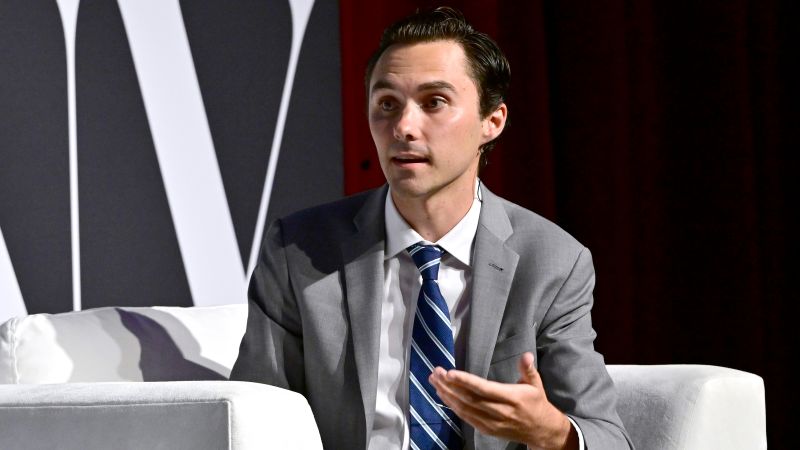In a significant move that has captured the attention of political observers, the Democratic National Committee (DNC) has announced that it will hold a vote in June to determine whether to hold a redo of the election for the positions of vice chairs, specifically those occupied by prominent figures David Hogg and Pennsylvania State Representative Malcolm Kenyatta. This decision has emerged from challenges regarding the procedures followed during the initial election, which took place in February.
The push for a redo stems not only from procedural grievances but also from increasing tensions within the Democratic Party. Hogg, known for his outspoken views and activism, particularly in the realm of gun control advocacy, has been a controversial figure as of late. He has openly expressed support for primary challengers against Democratic members of Congress whom he deems ineffective, an action that has further polarized opinions within party ranks. This internal rift is significant and highlights the ongoing ideological battles that the Democratic Party is grappling with as it seeks to define its future direction.
DNC members will have the opportunity to cast their votes electronically between June 9 and June 11. They will determine whether to conduct a do-over of the election. Should the majority vote in favor of this, an expedited election process will follow. A new election to fill the available vice chair positions will take place within just a few days, with voting for a male vice chair scheduled from June 12-14, while a subsequent vote for a vice chair of any gender will be held from June 15-17.
During a committee meeting addressing this situation, David Hogg spoke passionately against the proposal for a redo, arguing it sends a “horrible message” about the DNC’s ability to run elections effectively. Hogg emphasized that if a redo were to occur, it could reflect poorly on the party’s image at a time when efficiency and competence are highly valued in political administration. He expressed his concerns about conducting the election electronically or via mail, suggesting that such methods might compromise the integrity of the election process.
Malcolm Kenyatta, echoing Hogg’s assertion on fairness, defended the integrity of the original election results. He called for a candidate forum to engage the party members and ensure transparency and inclusion should a redo be sanctioned. Kenyatta’s perspective highlights the importance of open discourse and engagement within the party to mitigate potential discord that could arise from the aftermath of a controversial election cycle.
Earlier in the current month, the DNC’s Credentials committee recommended a revote, indicating that procedural issues during the February election warranted such action. The basis for this challenge was presented by Kalyn Free, a party activist from Oklahoma, who alleged that there were violations of parliamentary rules in the existing election process. Hogg and Kenyatta had won two of the three available vice chair positions, making the outcome particularly contentious.
Another layer to this intricate situation includes the complex gender parity requirements that dictate the composition of the DNC’s leadership. These requirements often complicate elections and decision-making processes, as they must be navigated carefully to ensure compliance with party regulations and to promote equitable representation.
In a separate but related effort, DNC Chair Ken Martin has proposed a measure aimed at requiring elected party leaders to maintain neutrality during primary elections. This proposal reflects the ongoing debates about the role of various party officials and leaders in influencing primary outcomes. The DNC is anticipated to deliberate and vote on this new proposal in an upcoming meeting scheduled for August.
The developments surrounding the DNC’s potential do-over election and the internal divisions within the party underscore the challenges ahead for the Democrats as they strive for unity and effectiveness in the lead-up to future elections. As the political landscape continues to evolve, the decisions made by the DNC will significantly impact its strategy and the party’s cohesion moving forward. The outcome of the impending votes will certainly shape the party’s direction and its internal dynamics in the months to come.



